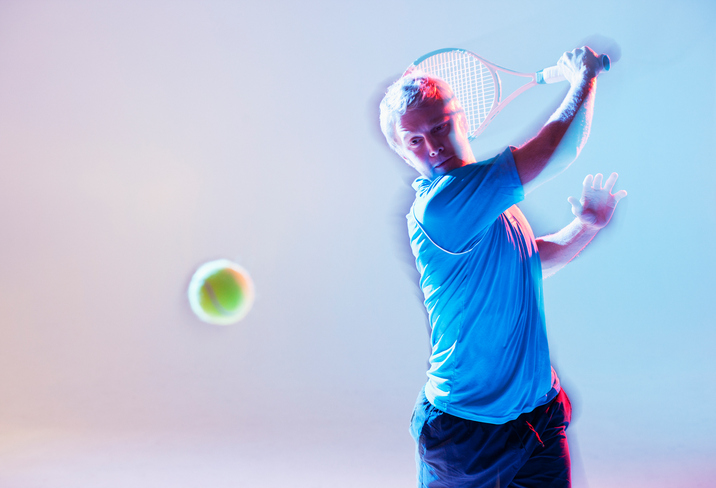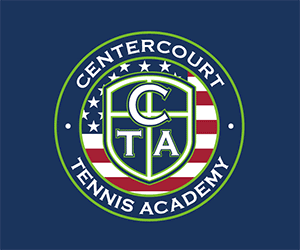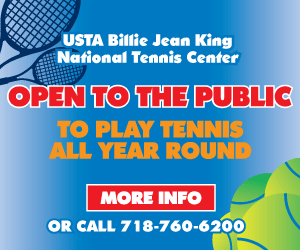Improving Through Experience

I am often asked what prepares a young tennis player for playing at the collegiate level. Over the course of 25 years in the business, my answer has evolved. Between my role as head coach of the NYU Men’s tennis team for 10 years (including scouting prospects nationwide) and my current role as owner of Manhattan Tennis Academy, I have come to believe that the answer is two-fold and the elements are largely interdependent.
First, any successful player must have mastered the fundamentals. As discussed in greater detail below, a player who has not mastered the fundamentals will be limited in their ability. Second, is the more elusive element of experience. When I refer to “experience,” I’m not simply referring to the amount of time that a player has been actively engaged in learning tennis. While the length of time played is of course almost always directly correlated to success, I’m referring more to the mental maturity and stability gained through experience.
Mastering the fundamentals
What does it mean to master the fundamentals? This goes well beyond developing strong forehands and backhands. Just as important are the often-overlooked fundamentals of timing, agility/footwork, coordination and balance, what I refer collectively to as core athletic skills.
It is my experience that in the last few years, these fundamentals can often be sidestepped in order to fast-track a student into playing at a level beyond their own ability. This includes ensuring that a student is engaged in a level of play that is appropriate for their age and skill level. It goes without saying that, for example, a five-year-old boy cannot master his serve while playing from the baseline with a 27-inch racket. Rather, appropriate equipment in this day and age is critical to cultivate strong fundamentals. This is precisely why the USTA developed their 10 & Under initiative. It is critical for parents, instructors and students alike to appreciate that a player can only master fundamentals when given the appropriate equipment in the appropriate setting (i.e. court size, ball colors, etc.)
For instance, my academy devotes just as much time to teaching agility skills and mental awareness as we do to honing groundstrokes. If a child is rushed into learning strokes or tactical skills, even the slightest of shortcomings in their game will be exacerbated over time and ultimately exposed to their opponent as the level of competition increases.
Experience and mental/emotional maturity
The second most crucial aspect of preparing a student for collegiate level tennis is ensuring that their mental/emotional game is rock solid. That is, ensuring that an individual has learned how to temper themselves mentally and emotionally through difficult match situations that will be present at the collegiate level. How does one cultivate a strong mental/emotional game? In my experience, this can only be understood through repetitive exposure to winning and losing under different circumstances.
Just as fundamentals are not developed overnight, a player must be exposed to match play to see how they react to a loss, upset, or poor sportsmanship and bad line calls. Not surprisingly, often times, a child’s initial reaction is to lose their concentration, get flustered, and turn mentally soft. Over time, and with proper attention to this “skill” (and it is a skill), this part of one’s game can gradually evolve and transform into a strength. The more a child is exposed to these scenarios and is coached to pay attention to their reaction, the more likely they will develop the skills necessary to look within and achieve a sense of calm during these stressful moments.
In addition to constantly evaluating and adjusting technical skills at our Academy, we evaluate and address the mental skills of the game such as concentration, awareness and good sportsmanship. In addition, our pros teach their students to try to always remain positive. This can be achieved in a number of ways. Although not always easy in the heat of competition, we often suggest that the student take a quiet moment between points and tell themself, “The next point is mine.” This translates to carrying positive energy into the next point.
When I think of the importance of the mental/emotional game, I am always impressed by Novak Djokovic’s unparalleled ability to overcome adversity in matches. From his victories against Roger Federer at the U.S. Open in 2011, to his 2015 Wimbledon victory only weeks after his upsetting loss at the French Open, Djokovic is the master of what I call “calm intensity.” That’s to say that he has this unique ability to stay razor-focused and maintain his aggressive game, while breathing calmly and making smart shot selection decisions, while maintaining a strong strategic plan. This would be impressive in normal match situations … never mind in the biggest, most pressure-packed times of the match/tournament. I was not surprised to learn in his 2013 book Serve to Win that Djokovic practices mindfulness meditation for 15 minutes every day. According to Djokovic, his mindfulness training is just as important as his physical training. Just as he dedicates himself to rigorous physical training and an incredible stretching regimen, he believes that his devotion to mindfulness, proper breathing and general positivity are all keys in overcoming adversity in the biggest match moments.
Overall, it is critical that a budding tennis star receives the proper training. This not only means placing them in a teaching environment where they are taught age-appropriate skills, but also that they receive mental/emotional awareness both at home and at their lessons on the court. If a student can strike this delicate balance, they will most certainly be on their way to a successful college tennis career.






